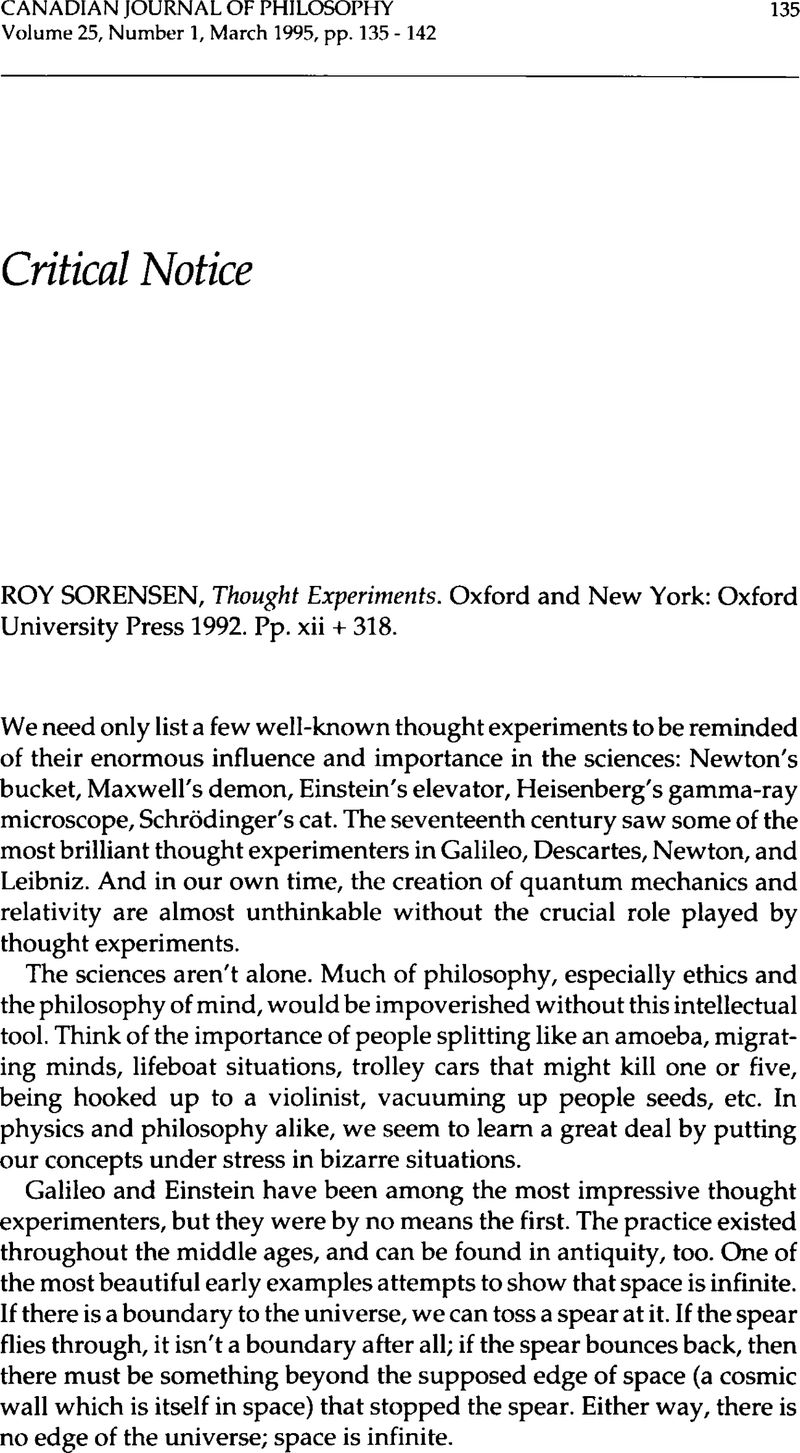Published online by Cambridge University Press: 01 January 2020

1 Oxford: Oxford University Press 1988. Though opposed to the use of thought experiments, Wilkes does not shy from the far out. Much of her work is based on split-brain subjects. But these, her title reminds us, are real people.
2 See Norton, J. ‘Thought Experiments in Einstein's Work,’ in Horowitz, T. and Massey, G. eds., Thought Experiments in Science and Philosophy (Savage, MD: Rowman and Littlefield 1991)Google Scholar; and my The Laboratory of the Mind: Thought Experiments in the Natural Sciences (London and New York: Routledge 1991).
3 For criticisms see Brown, ‘Why Empiricism Won't Work,’ in Hull, D. Forbes, M. and Dkruhlik, K. eds., PSA 1992, vol. II (East Lansing, MI: Philosophy of Science Association 1993) 271–9Google Scholar; and for a defense see Norton's ‘Are Thought Experiments What You always Thought They Were?’ (forthcoming)
4 Tooley, M. ‘The Nature of Laws,’ Canadian Journal of Philosophy 7 (1977) 667–98CrossRefGoogle Scholar
5 For details see my The Laboratory of the Mind.